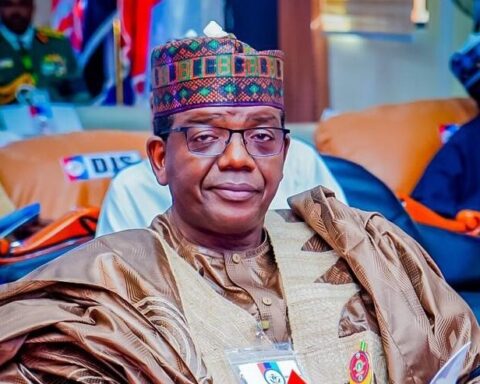A mere four years after emerging from a civil war, in 1974, Nigeria was at the beginning of an oil boom. Then, as today, the country was in the middle of a debate about fiscal federalism and revenue allocation. Unlike today, however, there were significant differences: the country was under military rule and the men leading the debate were all soldiers. In the fifty years since then, the structure of this debate and the geo-political symmetries that define it have evolved only a little.
The immediate spark for the debate fifty years ago was the publication of the statutory allocations to the twelve states of the federation then for the fiscal year 1974-75. With a population of 2.5 million, Mid-West State received 139.9 million Naira or 23.7% of the allocation. Rivers State, whose population was 1.5 million, received 101.1 million Naira.
in his handling of the unitarising tendencies that underpinned the recommendations of the Dina Committee. First, the civil war was an extenuating circumstance. Second, the regimental traditions of military government limited the degree of elite dissension. Third, as a military ruler, he ultimately did not have to suffer any institutional constraints similar to those imposed by a parliament or its equivalent under elected civil rule.
For the current incumbent fifty years later, a civilian seeking to accomplish what would be the most far-reaching restructuring of Nigeria’s fiscal fundamentals in 110 years, none of these advantages exists and he suffers many more debilitations besides.
By some coincidence, in the year that Gowon constituted the Dina Committee, the celebrated Kenya political scientist, Ali Mazrui, explained the challenges of structural stability in post-colonial African states in terms of two underlying crises of state legitimacy and of regime legitimacy.
Fiscal reform on the ambition evinced by the proposals now under consideration in Nigeria assumes the existence of a capable state which enjoys affinity among citizens, an overwhelming percentage of whom should be documented. None of these can be taken for granted in Nigeria. The evidence from across the fields of financial inclusion, electoral participation, and taxation suggests that the proportion of documented Nigerians does not exceed 40%. It will take more than a few convenient ebullitions to address this.

Any government will be challenged in addressing it. An administration that suffers from manifest issues of legitimacy lacks the currency to trade with in this situation. The crisis that afflicts the current proposals is that of a government unwilling to put in the work required to redress deficits of state and governmental legitimacy around the country. To address what is evidently a political problem, the government has chosen instead to escape into self-inflicted technocratic gobbledygook.
Fiscal governance and reform is not as complex as the administration and its mouthpieces would like to suggest. Taxation is more than mechanical computation. It is the centrepiece of the social compact between a state and its citizens. With considered inadvertence, the administration of Bola Ahmed Tinubu has done itself a world of good by inspiring these increasingly raucous debates about the state of that compact in Nigeria or the lack of it. It will be best served by listening to the debate in humility while it learns.
A lawyer and a teacher, Odinkalu can be reached at chidi.odinkalu@tufts.edu



























